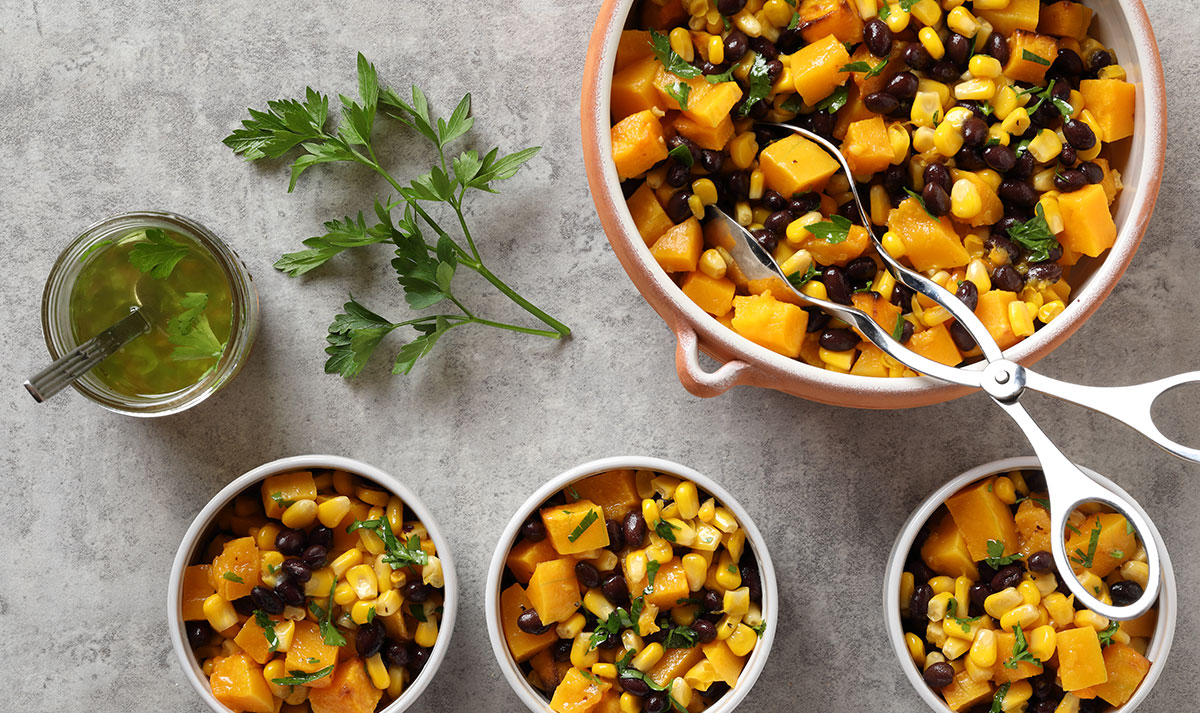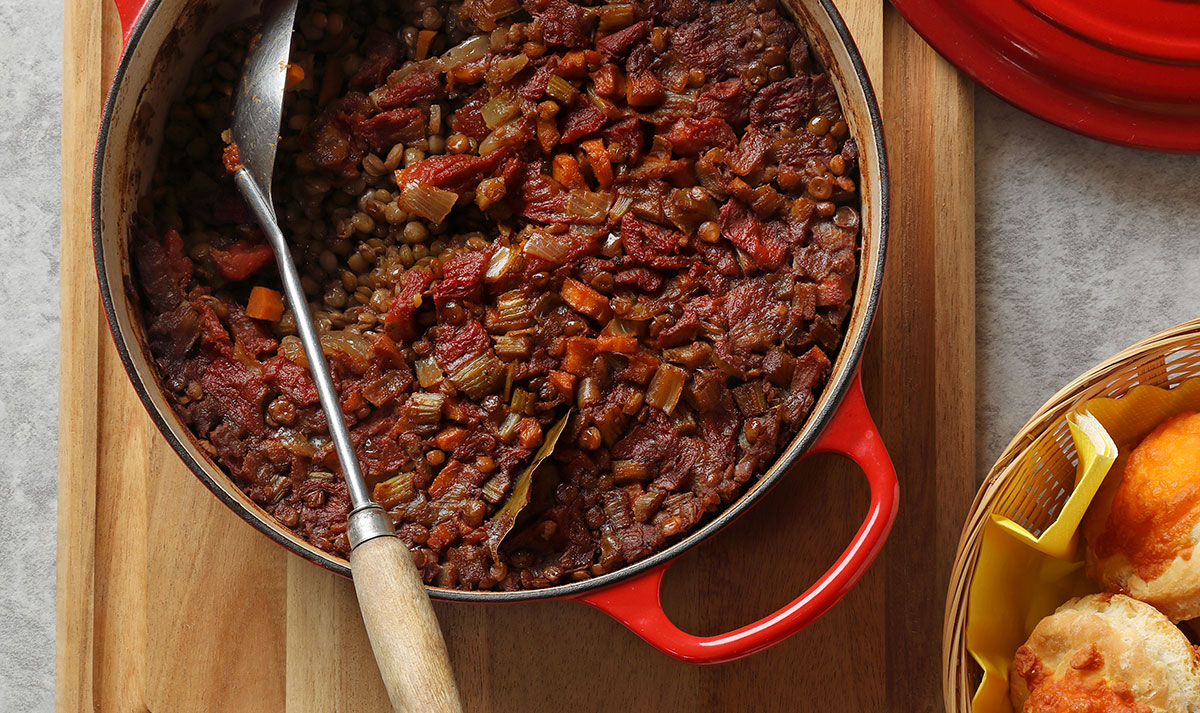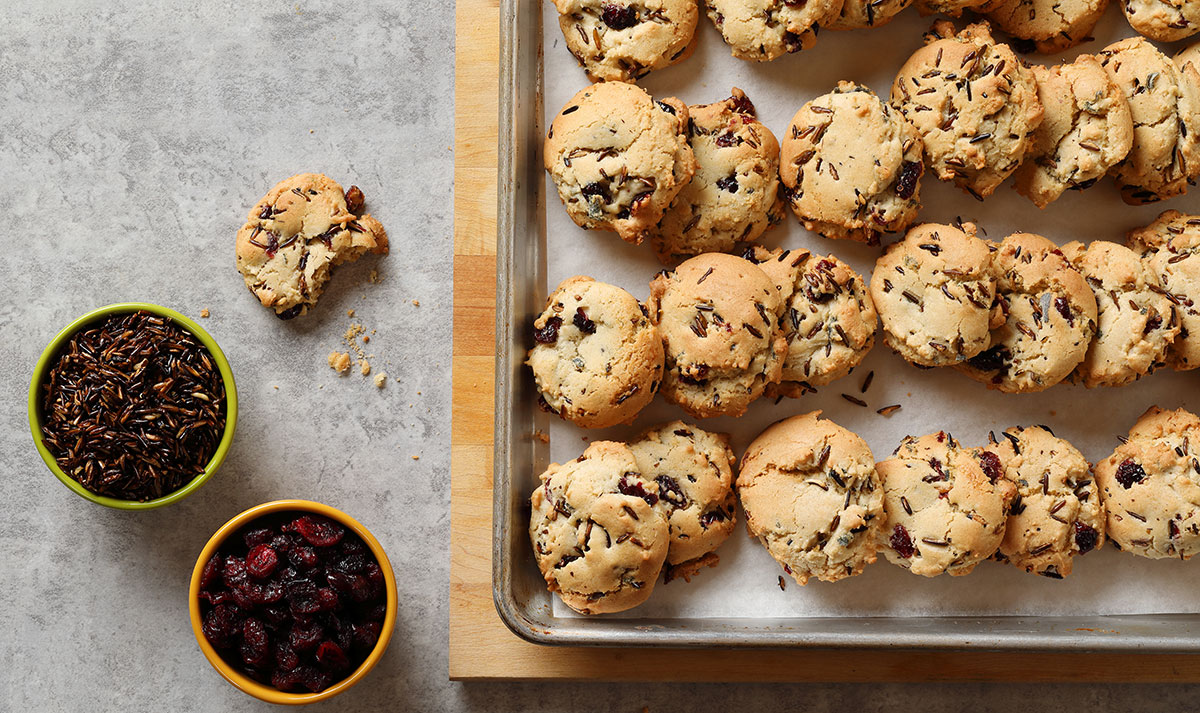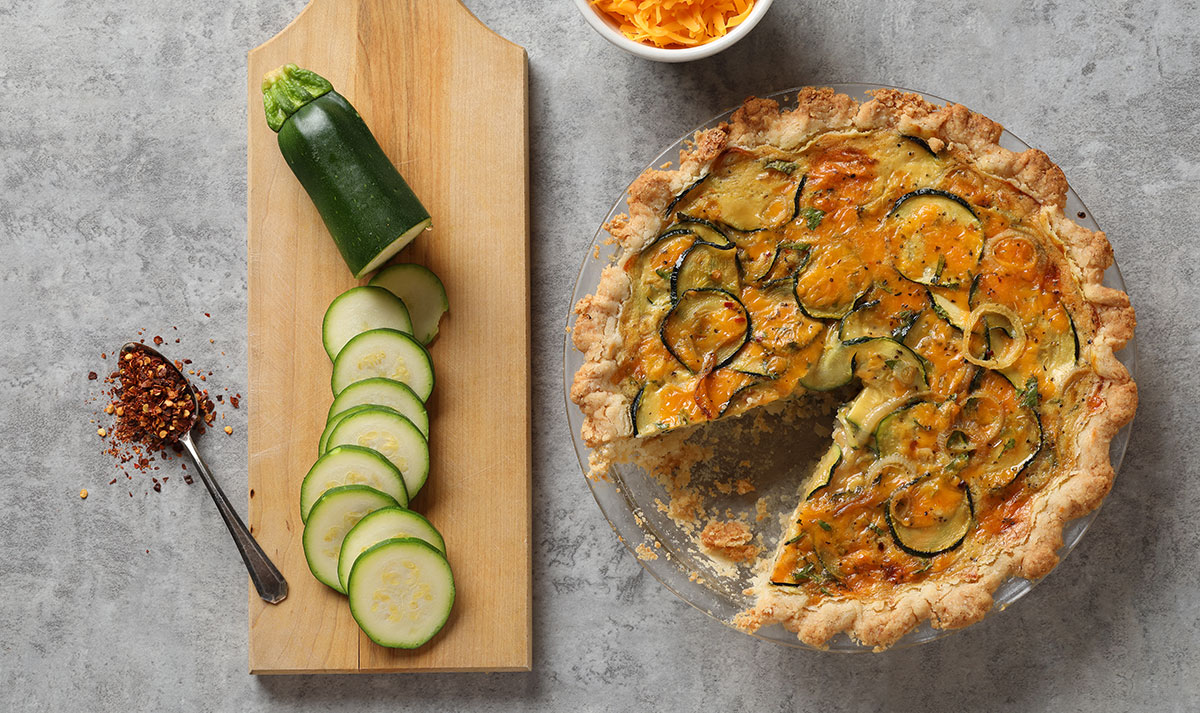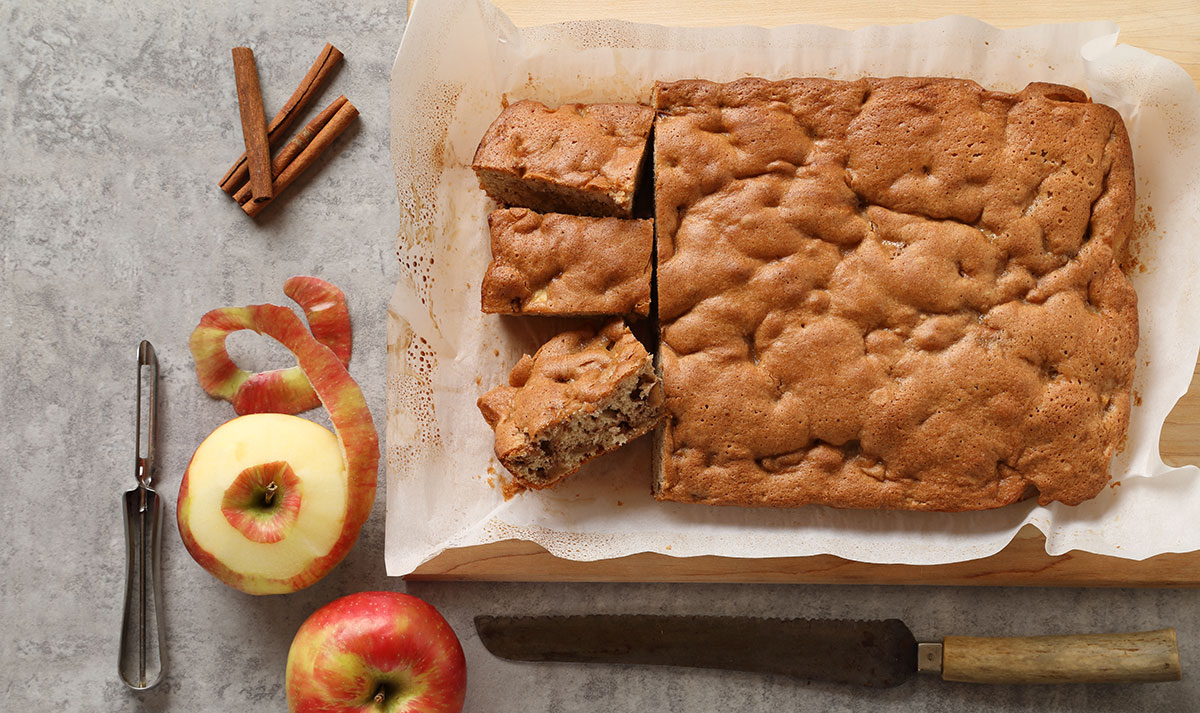Three Sisters Salad
Corn, beans, and squash; the three sisters are better grown together. They are ancient crops that formed the base of many Indigenous peoples’ diets. In legends, they are portrayed as three unique sisters who depend on one another. The corn grows tall for the beans to climb, and the squash provides protection from insects. The three also provide nutrients for each other and are delectable in this Three Sisters Salad! Recipe courtesy of Chef Kirk Ermine. Read the full story from Chef Jenni Lessard
Aunt Mabel’s Haystack-Baked Lentils
“I’ve adapted the recipe to use Saskatchewan-grown lentils and I use the oven instead of any sort of situation with hay, but one day I want to try the old method. I love serving these as a side dish at a BBQ meal, with fresh corn, or as a replacement for baked beans in the classic shore lunch, with pan-fried pickerel and crispy potatoes.” – Chef Jenni Lessard
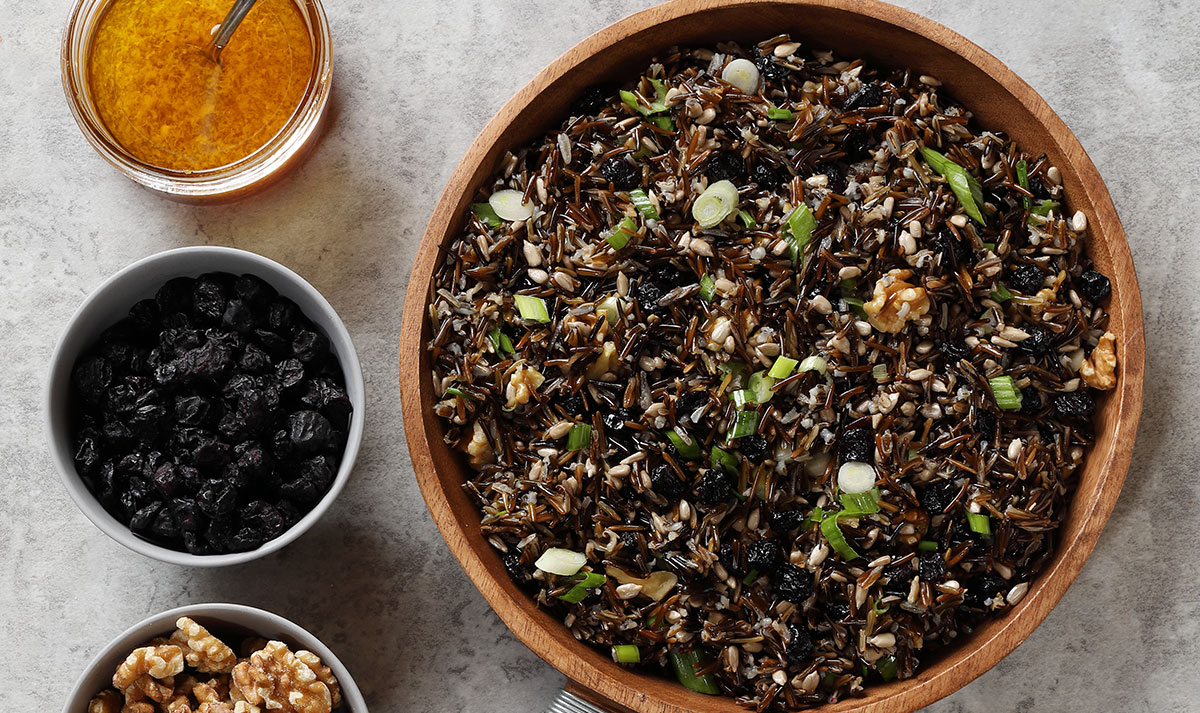
Wild Rice Salad with Maple Vinaigrette
Wild rice was originally grown and harvested in Northern Ontario lakes by the Ojibwe people. It is a staple food that is also used in traditional medicine and rituals. Wild rice was first introduced to the Northern Lakes of Saskatchewan in the 1960s. Since then, Saskatchewan has become the largest producer of wild rice. Experience wild rice’s nutty flavour yourself in this light, fragrant salad. Recipe courtesy of Chef Douglas Hyndford.
Cranberry, Sage, and Puffed Wild Rice Cookies
The Mâmawi Cafe is a student-run food program that is at the heart of the mâmawêyatitân center in North Central, Regina, Saskatchewan. This was originally a chocolate chip cookie recipe that the students Indigenized with traditional ingredients. The sweetness of dried cranberry, the mintiness of fresh sage, and the crackle of puffed wild rice are sure to leave an impression! Recipe courtesy of Mâmawi Cafe.
Zucchini Quiche
“Every year our family’s “three sisters” garden produces an abundance of zucchini. This quiche is a perfect way to cook up all those delicious veggies. Tender zucchini suspended in a creamy, cheesy egg base in a flaky canola oil crust is a flavourful dish with just a hint of heat.” – Chef Jodi Robson
Cinnamon Apple Cake
Growing up on Okanese First Nation, our home was often filled with the aroma of the warm spices and sweet apples in this simple yet classic cake. Easily created with pantry staples the Cinnamon Apple cake is everything you could want in an apple pie…if the pie was a cake! It’s wonderful to recreate something that tastes just like my Kokum used to make. Recipe courtesy of Chef Jodi Robson.
A Story of the Three Sisters Salad
For Chef Kirk Ermine, cooking isn’t just about food. As he chops, peels, and dices the ingredients for his Three Sisters Salad, some traditional knowledge is shared along with culinary tips.
The vibrant and contrasting colours of the corn, beans and squash, Kirk explains, can improve a person’s mood before they even eat, explaining further that what we look at can influence how we feel and act. His humbleness is evident when he adds, “that’s what I was taught” after each piece of wisdom.
Originally from Sturgeon Lake Cree Nation in northeastern Saskatchewan, Kirk is now sous chef at Dakota Dunes Resort on the Whitecap Dakota First Nation near Saskatoon. Commercial kitchens can be hectic and stressful, but Kirk is committed to maintaining a calm and cheerful attitude no matter what challenges come his way.
For him, this sometimes means praying at the start of the day. His grandfather taught him that even simple, short prayers are important. Having been diabetic for more than half his life, Kirk is committed to creating healthy, simple, and delicious dishes while introducing diners to foods that have long been part of Indigenous cuisine.
The Three Sisters are an Indigenous companion planting technique where corn, beans and squash grow together to deter weeds and pests, enrich the soil, and support each other. Their flavours meld well together, too, and provide a good balance of carbohydrates, fibre, and protein as well as heart-healthy, unsaturated fats with the addition of Canadian canola oil.
The squash is tossed with canola oil and then roasted until slightly charred. To complete the dish, a vinaigrette of honey, vinegar, and canola oil seasoned with just a pinch of salt and pepper is tossed with corn and any variety of beans you have on hand. Kirk switches up the herbs he uses in his signature salad, depending on the season. Parsley or cilantro work equally well.
The enticing colours of this sunny salad encourage even the pickiest of eaters to pick up a fork and dig in while the pleasing textures and satisfying flavours keep them coming back for more. This salad tastes even better the second day, so don’t worry about what to do with leftovers!
Story by Jenni Lessard

